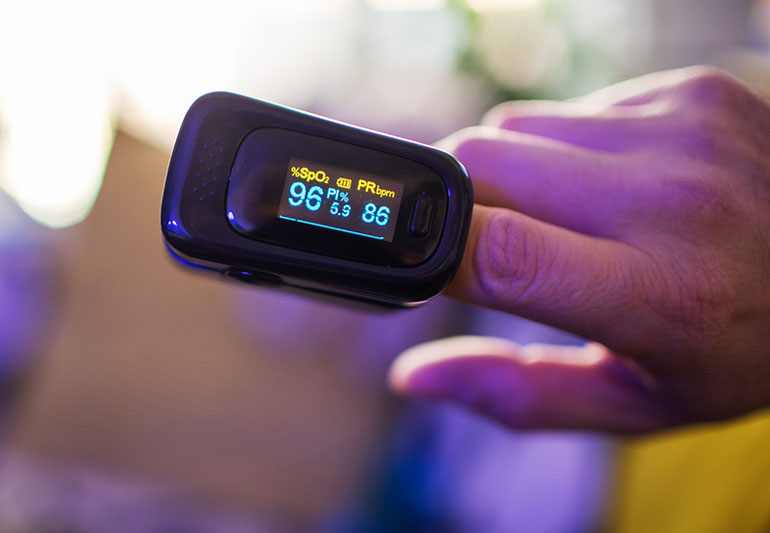Routine blood work is a common diagnostic tool used by healthcare professionals to evaluate a person’s overall health and detect potential medical conditions. While blood tests can provide valuable information about various aspects of the body’s functioning, it is important to note that cancer detection through routine blood work is not always straightforward.
Cancer, a complex and diverse group of diseases characterised by the uncontrolled growth of abnormal cells, typically requires more specific tests for accurate diagnosis. However, certain blood markers and abnormalities can sometimes indicate the presence of cancer or serve as red flags, prompting further investigation. In this article, we will explore does cancer show up in routine blood work.
Table of Contents
Does cancer show up in routine blood work?
Routine blood work is not typically designed to specifically detect cancer. However, certain types of cancer may cause changes in the blood that can be detected through routine blood tests.
Routine blood work often includes a complete blood count (CBC) and a comprehensive metabolic panel (CMP). A CBC measures the number and quality of different blood cells, such as red blood cells, white blood cells, and platelets. While abnormalities in these cell counts may raise suspicion for underlying health issues, they are not definitive indicators of cancer.
Additionally, the CMP measures various substances in the blood, including electrolytes, liver enzymes, kidney function markers, and glucose levels. Although certain abnormal results may raise concerns, they do not directly confirm the presence of cancer.
What blood tests are used to detect cancer?
Several blood tests can be used to aid in the detection and diagnosis of cancer. Here are some commonly used blood tests for cancer detection:
- Complete Blood Count (CBC): This test measures the number and quality of different blood cells. Abnormalities in red blood cells, white blood cells, or platelets may indicate certain types of cancers or other underlying conditions.
- Tumour Markers: Tumour markers are substances produced by cancer cells or normal cells in response to cancer. Elevated levels of specific tumour markers in the blood may suggest the presence of certain types of cancer. Examples include prostate-specific antigen (PSA) for prostate cancer, carcinoembryonic antigen (CEA) for colorectal and other cancers, and CA-125 for ovarian cancer. It’s important to note that elevated tumour marker levels are not definitive proof of cancer and may be caused by other factors.
- Alpha-Fetoprotein (AFP): AFP is a specific tumour marker used primarily to detect liver cancer (hepatocellular carcinoma) and certain types of germ cell tumours, such as testicular cancer and ovarian cancer.
- CA 19-9: This tumour marker is primarily used in the management of pancreatic cancer and certain gastrointestinal cancers, particularly colorectal cancer.
- CA 15-3 and CA 27.29: These tumour markers are often used to monitor treatment response and disease progression in breast cancer.
- PSA (Prostate-Specific Antigen): PSA is a protein produced by the prostate gland. Elevated levels of PSA may indicate prostate cancer, but further tests such as a biopsy are typically needed to confirm the diagnosis.
How accurate are routine blood tests in detecting cancer?
Routine blood tests are not designed to specifically detect cancer. However, certain types of cancer may cause changes in blood levels of various substances that can be detected through routine blood tests. The accuracy of these tests in detecting cancer depends on the type of cancer, the stage of the cancer, and the individual’s overall health.
For example, a complete blood count (CBC) may reveal abnormalities in red blood cells, white blood cells, or platelets that may indicate cancer. However, these abnormalities are not specific to cancer and can be caused by other underlying conditions. Elevated levels of tumour markers in the blood may suggest the presence of certain types of cancer, but these tests are not definitive for cancer diagnosis and require further evaluation.
The accuracy of blood tests for cancer detection is also affected by factors such as the sensitivity and specificity of the test, the laboratory performing the test, and individual variations in the production and release of substances that may indicate cancer.
Symptoms of cancer that may not be detected in routine blood work?
- Unexplained pain
- Changes in skin
- Persistent cough or hoarseness
- Difficulty swallowing
- Chronic fatigue
- Unexplained weight loss
- Changes in bowel or bladder habits
- Persistent indigestion or heartburn
- New or changing lumps or bumps
- Persistent headaches
What other diagnostic tests are needed if cancer is suspected?
If cancer is suspected, various diagnostic tests may be necessary to confirm the diagnosis and determine the type, stage, and extent of the disease. Some common diagnostic tests used in cancer evaluation include:
- Imaging tests
These include X-rays, computed tomography (CT) scans, magnetic resonance imaging (MRI) scans, positron emission tomography (PET) scans, and ultrasound. These tests help visualise and evaluate the presence, size, and location of tumours or abnormalities in the body.
- Biopsy
A biopsy involves the removal of a small sample of tissue or cells from the suspected tumour or affected area. This sample is then examined under a microscope to determine if cancer cells are present and to identify the type of cancer.
- Endoscopy
This procedure uses a flexible tube with a light and camera on the end to visualise and examine the inside of certain organs or body cavities. It can be used to obtain biopsies or evaluate abnormalities in the gastrointestinal tract, respiratory system, or other areas.
- Laboratory tests
Apart from routine blood work, specialised laboratory tests may be performed to detect specific markers or genetic abnormalities associated with certain types of cancer. Examples include testing for genetic mutations (e.g., BRCA1 and BRCA2) or molecular profiling of tumours.
- Bone marrow biopsy
This procedure involves the removal of a small sample of bone marrow tissue to evaluate for blood-related cancers or metastatic spread of cancer to the bone marrow.
- Lumbar puncture
Also known as a spinal tap, this test involves the removal of a small amount of cerebrospinal fluid from the spinal canal for examination. It is primarily used to diagnose and stage cancers that may have spread to the central nervous system.
The specific tests required will depend on the individual’s symptoms, medical history, physical examination findings, and initial screening results. Healthcare professionals will determine the most appropriate diagnostic tests to use in each case.
FAQ
Q1: Can routine blood work detect cancer?
Ans: Routine blood work is not designed specifically for cancer detection but may show certain indicators.
Q2: What should I do if my blood work shows abnormalities?
Ans: Consult a healthcare professional for further evaluation and guidance based on your specific situation.
Q3: Are all abnormalities in blood work a sign of cancer?
Ans: No, abnormalities can have various causes and may not necessarily indicate cancer.
Q4: What additional tests are needed for cancer diagnosis?
Ans: Additional tests such as imaging, biopsies, or specialised blood tests may be necessary for cancer diagnosis.
Q5: How accurate are routine blood tests in detecting cancer?
Ans: Routine blood tests are not highly specific for cancer detection and require further evaluation.




